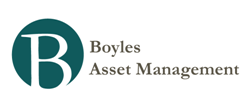Money and Finance
- Links
Jason Zweig: Here’s a Tip: Buy More TIPS (LINK)Energy stocks aren’t the only investment taking a beating from the collapse in oil prices. Treasury inflation-protected securities have suffered as crude’s 50% decline erodes the chances of a meaningful...
- Selling Cash-secured Put Options
[This article is also posted on Seeking Alpha HERE.] Selling puts on stocks can be a good way to either gain some yield and/or try and buy a stock you'd like to own at a lower price. I prefer cash-secured puts so that if the stock gets put to you,...
- Hussman Weekly Market Comment: Warning - An Updated Who's Who Of Awful Times To Invest
In recent weeks, the U.S. stock market has been characterized by an overvalued, overbought, overbullish, rising-yields syndrome that has historically been hostile to stocks. Last week, the situation became much more pointed. Past instances have been associated...
- The Evidence For Dividend Growth Investing
This following post is written by Ben Reynolds, who runs the Sure Dividend site. Sure Dividend focuses on high quality dividend growth stocks suitable for long-term investing. Dividend growth stocks are an excellent vehicle to build passive income over...
- Will This Way Speed Up Your Earnings?
I keep lots of my stocks in IRA, IRA Roth and SEP accounts. After observing stock market for a while, I have this idea of speeding up my earnings. Usually I try to spend at least $1,500 per purchase on my stocks. Or if I am not sure in stock or short...
Money and Finance
Why the Dow—Quirks and All—Is Beating the S&P 500 – By Jason Zweig
This coming week, the dowager gets a makeover. The Dow Jones Industrial Average, which turned 117 years old this summer, will get three new members as Nike, Visa and Goldman Sachs Group replace Alcoa, Hewlett-Packard and Bank of America.
Should you care? There will be no immediate impact on the level of the Dow, which finished this week at 15376; the three stocks getting the boot have barely budged in price. But the inner workings of the average, which have changed little since its inception, hold some important lessons for investors—most notably that things on Wall Street are seldom as simple as they seem.
The changes to the Dow “were prompted by the low stock price” of Alcoa, H-P and Bank of America and by the “desire to diversify…the index,” S&P Dow Jones Indices, which oversees the Dow, said in a statement. Dow Jones, publisher of The Wall Street Journal, owns a stake in the index company, which is a unit of McGraw Hill Financial.
Wall Street professionals, who regard the Dow as antiquated and cumbersome, mostly sneered. “High priced stocks totally skew this horribly constructed index,” tweeted Kid Dynamite, a trader who runs a popular blog. The way the Dow is put together, he later told me by email, “makes no sense at all.”
The Dow consists of 30 stocks; the higher its share price, the more a stock influences the level of the index. At its recent price of $192, International Business Machines has the largest weight in the Dow, at 9.6%—while Alcoa, at $8, makes up just 0.4%. A 1% rise in IBM’s share price would add roughly 15 points to the value of the Dow, while a 1% jump in Alcoa’s price would add only 0.6 point.
That method of building an index, called price weighting, differs from “value weighting,” in which stocks with a greater total market value (regardless of their per-share price) loom larger. The market value of IBM’s shares totals $209 billion—but that gives it only the 12th largest position in the value-weighted S&P 500, at 1.32% of the index. Instead, Apple—total market value, $429 billion—has the biggest weight in the S&P 500, at 2.92%.
- Links
Jason Zweig: Here’s a Tip: Buy More TIPS (LINK)Energy stocks aren’t the only investment taking a beating from the collapse in oil prices. Treasury inflation-protected securities have suffered as crude’s 50% decline erodes the chances of a meaningful...
- Selling Cash-secured Put Options
[This article is also posted on Seeking Alpha HERE.] Selling puts on stocks can be a good way to either gain some yield and/or try and buy a stock you'd like to own at a lower price. I prefer cash-secured puts so that if the stock gets put to you,...
- Hussman Weekly Market Comment: Warning - An Updated Who's Who Of Awful Times To Invest
In recent weeks, the U.S. stock market has been characterized by an overvalued, overbought, overbullish, rising-yields syndrome that has historically been hostile to stocks. Last week, the situation became much more pointed. Past instances have been associated...
- The Evidence For Dividend Growth Investing
This following post is written by Ben Reynolds, who runs the Sure Dividend site. Sure Dividend focuses on high quality dividend growth stocks suitable for long-term investing. Dividend growth stocks are an excellent vehicle to build passive income over...
- Will This Way Speed Up Your Earnings?
I keep lots of my stocks in IRA, IRA Roth and SEP accounts. After observing stock market for a while, I have this idea of speeding up my earnings. Usually I try to spend at least $1,500 per purchase on my stocks. Or if I am not sure in stock or short...

